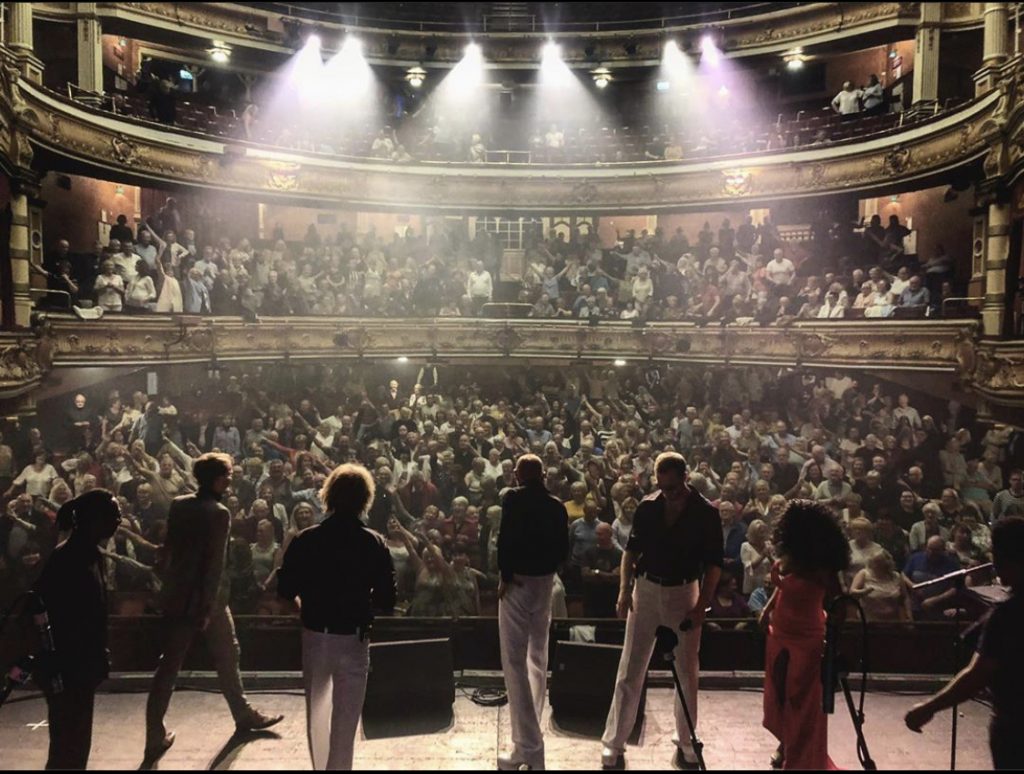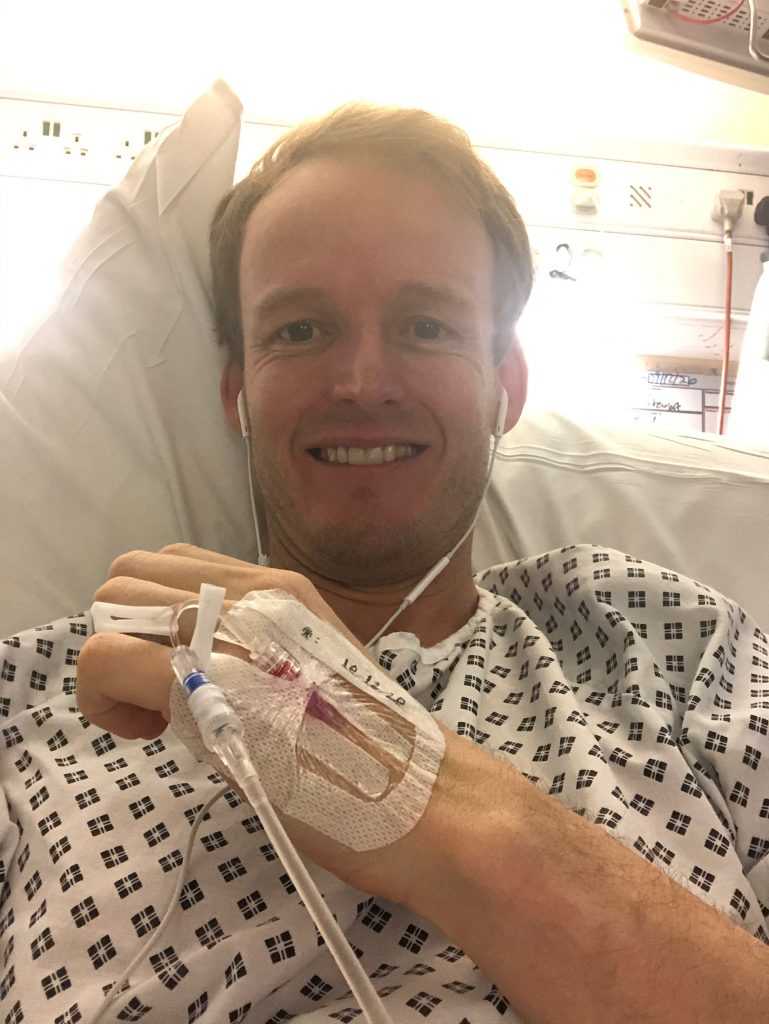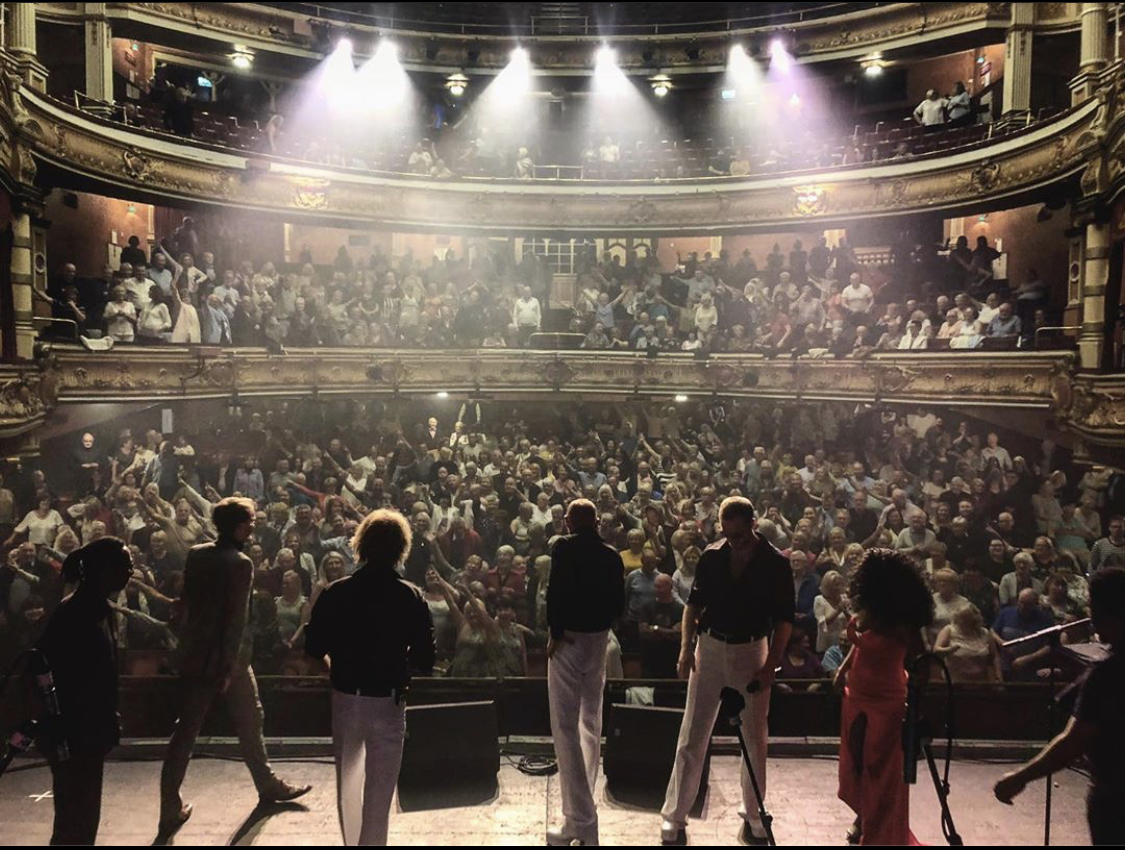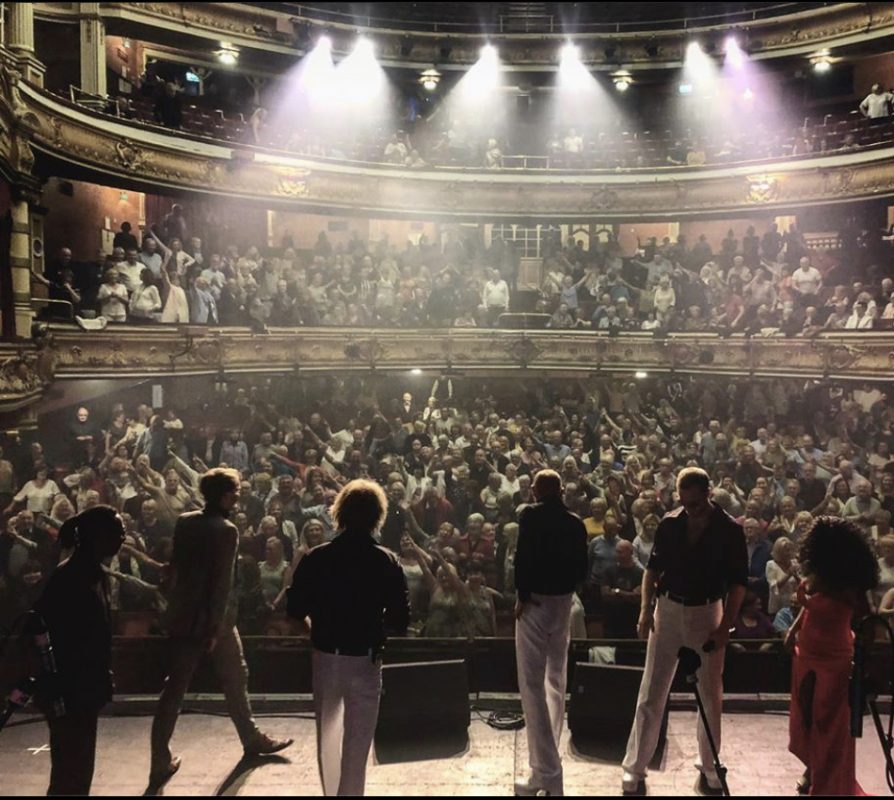
I started becoming aware that things might not be how they were. Finally beginning to accept the reality that I’d probably never act again. It didn’t frighten me as much as I imagined it might. I felt grateful for the opportunities I’d had, and for the first time allowed myself to be proud of what I’d already achieved. As my long-term memory slowly returned, I was relieved that it was relatively unaffected. I revisited every detail I could remember over the next few days. All the tours, friendships, and audiences, the times on set, auditions, and rehearsals took on much more significance. Performing had been a huge part of my life, I chose not to think that it had now been lost, but rather to remember everything it had allowed me to gain. I kept telling Suzy I felt happy and just wanted the feeling to stay. I knew that eventually it would be tough, but for now though I was accepting that life was going to be different, and I was choosing to embrace the change.
I had no idea what round two might bring, I just wanted to be in the ring.
My surgery was scheduled for the tenth of December, fifteen days after I had arrived in hospital. The journey and improvements I had experienced so far were remarkable. The blood in my brain had started being reabsorbed, reducing the pressure on the surrounding tissue. Although the improvements had been a good sign, it was still impossible to tell what the permanent damage of the rupture might be. Removing the AVM was only step one, I’d then need to recover from brain surgery before being able to determine what further procedures might be needed. If my vision didn’t improve, there was a conversation about the possibility of an operation to remove blood from near my optic nerve. Also if the entire AVM couldn’t be removed safely this time, I may have to go back under the knife. The closer I got to my surgery date, the more overwhelmed I’d get if I allowed myself to consider what might happen. Quickly being engulfed by anxiety, like a thick toxic fog, it was ready to surround me as soon as I opened the window of my mind to it. Breathing in these thoughts tightened my chest, increased my heart rate and left me feeling paralysed, allowing all the undesired endings to slap me across the face. Filling my mind with positive memories, listening to music and speaking to friends and family helped. Exercise, Suzy’s visits and the wonderfully kind hospital staff made sure that I didn’t dwell too long among these murky concepts. In truth I only allowed myself to be overpowered by them twice. First after a phone call where the person suggested that I was being too positive, and that I should be prepared for things to get more difficult for me. Second after listening to Manchester United get knocked out of the champions league by RB Leipzig. Both of these relatively unremarkable triggers illustrated to me the vital importance of maintaining a positive headspace. From then on I selfishly focused on avoiding conversations that might affect my mood, I looked daily for reasons to be grateful and delved into memories of the happiest times in my life. One morning I heard a fellow patient being told that the operation to remove his aneurism had a fifty percent chance of leaving him brain dead. He spent the day understandably toying with every possible emotion, mostly angrily screaming at his mother, wife and the nurses, before sobbing himself to sleep. I avoided eye contact, put my headphones in and pretended to sleep, knowing that I could quite easily be made to feel how he did about my own odds. During dinner he apologised and said that he was terrified that his two-year old son would have to grow up without a father, he asked me what I thought he should do. My single focus had driven all of my decisions so far and I suggested he did the same. I told him to be brave and think of getting home to his young family, ignoring my natural instincts to empathise and wallow in the direness of our situations. I felt lucky again, grateful that we didn’t have to make those agonising decisions as new parents.
Dr Kailaya-Vasan felt that we now had the ideal opportunity to remove the AVM, because the blood in my brain was starting to be reabsorbed, but the swelling was still creating space and keeping the AVM away from vital tissue. Focusing on these morsels of hope gave me the strength and optimism to face the last few days before my surgery. I had now entered a very strange part of my recovery; there was no point pushing ahead with any support or therapies, as they might all be undone by complications during my procedure. So I was just waiting, distracting myself, avoiding Covid-19, and attempting to maintain my positivity. Juan was scheduled to have his brain tumour removed on the day after my op, and so neither of us felt that we were going through this completely alone. We reassured each other, and regularly discussed what was going to be happening during our procedures, mostly as a way of passing the time, but it was also an opportunity to fathom what imminently lay ahead for us. We discussed hopefully being one surgery away from having these life-threatening lumps removed and starting to live the way we wish we had always done. Juan promised to take more holidays, he’d not had a day off from his plastering business in six years, and it was the dust that had caused the tumour in his sinuses. As we neared our relevant dates, we both started to get a bit more restless, nervously pacing the corridors and regularly checking how each other was feeling. On the night before my surgery Suzy came to visit after she’d finished work. She found the two of us stood chatting to a fellow patient who was recovering from recent surgery. His head was still bandaged, and he wasn’t making very much sense. Confused and worried that he’d always feel like this, he seemed unable to control the volume of his voice. Suzy’s arrival gave me an excuse to escape this glimpse of my not-too-distant future, and focus on spending some time with her. We decided to sit in an empty visitors waiting room away from the ward. It was evening breakfast time, so we ate together, pretending we were on a date. The surgery was due to be first thing, so we discussed that she wouldn’t visit in the morning for just a few minutes, but rather be there when I came out. We bravely focused on the future, chatting about going on holiday when it was all over, laughed about our silly dog Bertie, and then we silently held hands for a while. After she left I felt heavy. Juan was on the phone and so I just lay on my bed, staring up at the ceiling. A nurse arrived to take my vitals, and administer a final Covid test. I told her I wasn’t looking forward to having the cannula fitted in the morning. By now I should have gotten over my needle phobia, but the thought of having one sticking out of my arm for a few days made me feel queasy. Dr Kailaya-Vasan popped in to say he was heading home to get some sleep, and he was feeling positive for the morning. I told him I felt a bit anxious but I believed in him. He asked me what kind of actor I was, I replied saying, ‘I’m a bloody good one, so don’t mess this up’. I then wished him good luck and told him to just do his best.
After a cup of tea and some biscuits, Juan walked over and closed the curtain around my bed, he said I should spend some time with myself and then get a good night’s sleep. Sitting alone in my tented contemplation chamber, I was finally confronted by my own mortality. For the first time I briefly allowed myself to properly consider the possibility that tomorrow could be my final curtain. I worried about the pain it would cause for those who I’d leave behind; strangely I had no expectations of what might lie beyond. No religious epiphanies, my only fear was for the severing of my most treasured connections. If it all went wrong, I would just be a void, a black hole that would suck away all of my future promise, leaving those around me with slowly fading fragments. They would have the hard work, the whys, what ifs, and should haves. I would only exist in their memories. I decided to record a few voice-notes. They’re mostly a rambling collection of thank yous, reassurances that I felt loved and at peace, and a promise that I would fight with everything I had to get through this. I hoped that people wouldn’t ever have to listen to them, and that I would be able to say these things face to face. There were some regrets that I’d not told more people how much they meant to me over the last few days. I then set out a manifesto for the future, an instruction manual on how to make the most of my second chance. Promises of never having any regrets, living each moment as if it’s the last, and other clichés were punctuated with advice to be kinder to myself, practice more gratitude and seek joy. The thought of being fearless and getting out of my own way this time was what eventually brought me to tears. I had been profoundly altered by my time in hospital and lying there it became clear that whether or not I survived, a part of my life was over. I wept for a few minutes as I pictured what treasures the future might bring five, ten or even fifty years from now. I felt at peace, more certain than ever that I’d made the right choice. I made myself smile as I realised that tomorrow I would be in a theatre again, the wait was finally over, and in a few hours I would know if tomorrow was going to be the first day of the rest of my life.


